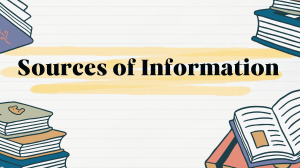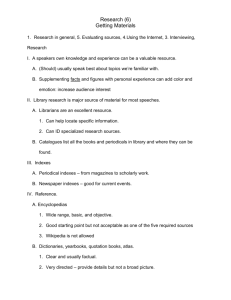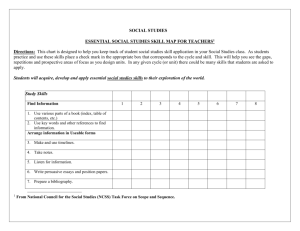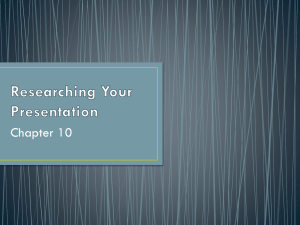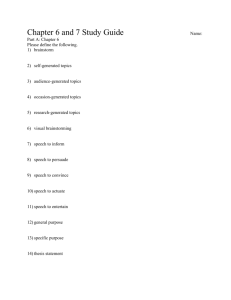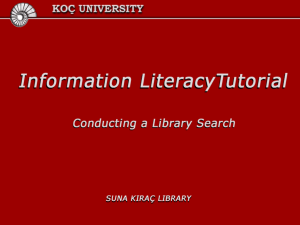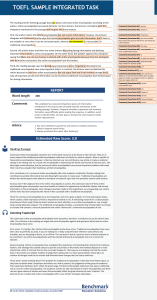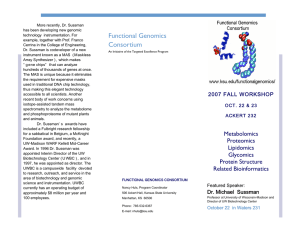College of DuPage Implementation Term ACTIVE COURSE FILE
advertisement
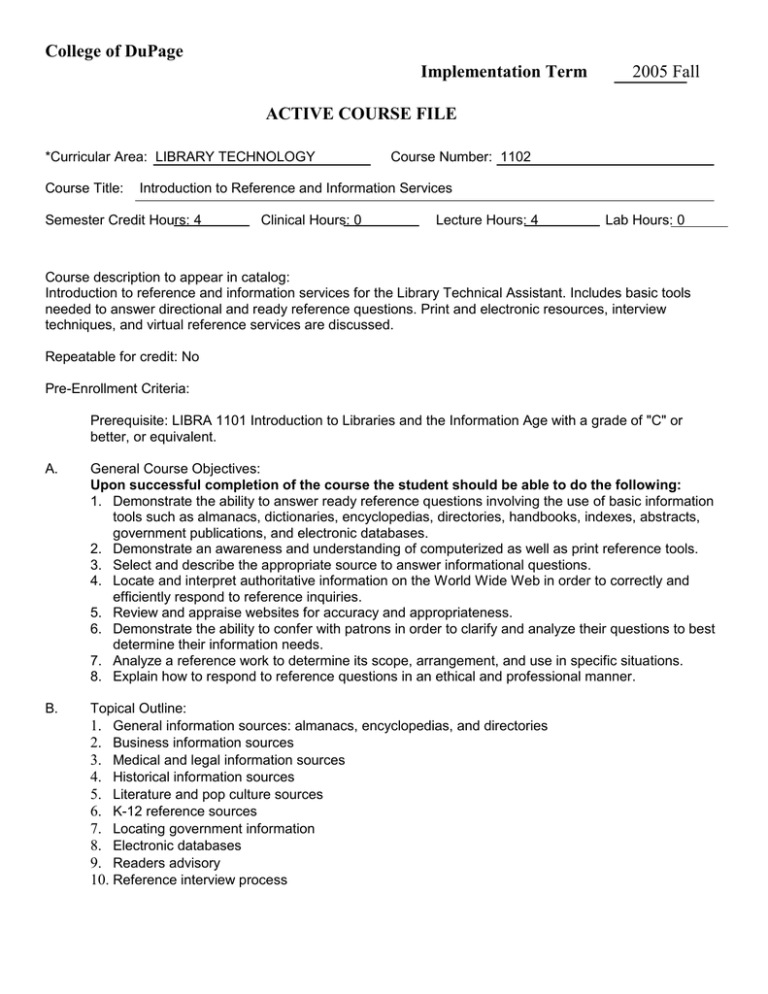
College of DuPage Implementation Term 2005 Fall ACTIVE COURSE FILE *Curricular Area: LIBRARY TECHNOLOGY Course Title: Course Number: 1102 Introduction to Reference and Information Services Semester Credit Hours: 4 Clinical Hours: 0 Lecture Hours: 4 Lab Hours: 0 Course description to appear in catalog: Introduction to reference and information services for the Library Technical Assistant. Includes basic tools needed to answer directional and ready reference questions. Print and electronic resources, interview techniques, and virtual reference services are discussed. Repeatable for credit: No Pre-Enrollment Criteria: Prerequisite: LIBRA 1101 Introduction to Libraries and the Information Age with a grade of "C" or better, or equivalent. A. General Course Objectives: Upon successful completion of the course the student should be able to do the following: 1. Demonstrate the ability to answer ready reference questions involving the use of basic information tools such as almanacs, dictionaries, encyclopedias, directories, handbooks, indexes, abstracts, government publications, and electronic databases. 2. Demonstrate an awareness and understanding of computerized as well as print reference tools. 3. Select and describe the appropriate source to answer informational questions. 4. Locate and interpret authoritative information on the World Wide Web in order to correctly and efficiently respond to reference inquiries. 5. Review and appraise websites for accuracy and appropriateness. 6. Demonstrate the ability to confer with patrons in order to clarify and analyze their questions to best determine their information needs. 7. Analyze a reference work to determine its scope, arrangement, and use in specific situations. 8. Explain how to respond to reference questions in an ethical and professional manner. B. Topical Outline: 1. General information sources: almanacs, encyclopedias, and directories 2. Business information sources 3. Medical and legal information sources 4. Historical information sources 5. Literature and pop culture sources 6. K-12 reference sources 7. Locating government information 8. Electronic databases 9. Readers advisory 10. Reference interview process 11. Types of reference service 12. Managing the angry patron 13. Ethics at the reference desk 14. Evaluating the web as reference tool 15. Search strategies for the world wide web C. Methods of Evaluating Students: 1. Students will be evaluated by tests and/or quizzes and/or worksheets and textbook chapter assignments and/or research projects and presentations. Class attendance may also be a factor in evaluation. LINDA SLUSAR Initiator 04-15-2004 Date Sponsor 04-15-2004 Date Meryl Sussman Division Dean 07/21/2004 Date
